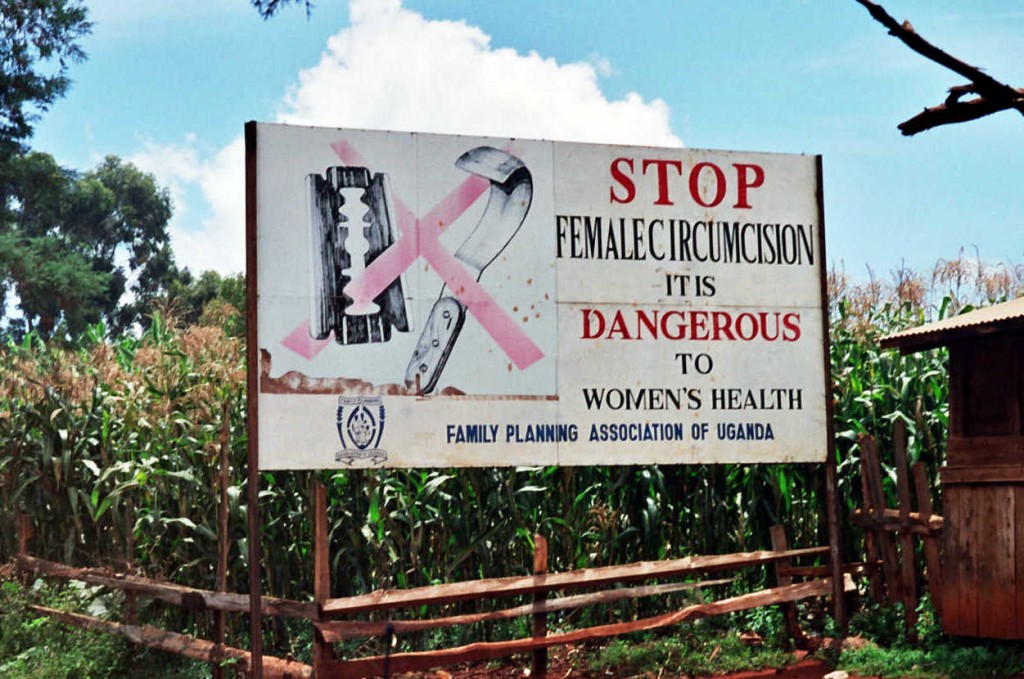Female Genital Mutilation: A page turned after three decades on the books?
Source: Road sign campaign against Female Genital Mutilation in Uganda by Amnon Shavit
-Nikita Beresford, (LLB Law, Newcastle University)
The first ever prosecutions for female genital mutilation (FGM) have been announced, 28 years after the offence was first specifically criminalised under Prohibition of Female Circumcision Act 1985. The act was replaced in 2003 with the Female Genital Mutilation Act without any prosecutions ever taking place. This decision is a positive step to combatting honour-based violence in Britain; it does not excuse the shocking record of past decades.
FGM is not a small-scale or trivial crime. The procedure can involve the full or partial excision of clitoris, labia minora or labia majora, and the subsequent sewing up of the vulva region, with only a small whole left for urine and menstrual blood. In the most extreme cases, women have to be cut open to allow for intercourse and childbirth, and are subsequently re-sewn. The physical risks include blood loss, shock, infection, urinary infections, abscesses and difficulties in passing menstrual blood, having intercourse, or giving birth. A 2007 study estimated that 23,000 girls resident in the UK under the age of 15 were at risk, while almost 66,000 women were already victims. More recent research indicates the number of at risk children could be much higher, more than double what was previously thought.
It is shameful that, given the number of potential victims, it is only now that the CPS has found a case in which it believes there is a reasonable chance of conviction. Offences of this nature are notoriously difficult to detect and investigate, with witnesses and victims unwilling to testify, and very few referrals being made to the police. But I share the sentiments of other bloggers that with so many instances of the crime, and the genital mutilation of young women itself being evidence of (at the very least) parental complicity, it is inconceivable that it has taken almost three decades to assemble enough evidence to go ahead with a prosecution. Hopefully the upcoming proceedings mark a watershed in public awareness and prosecutorial discretion, and in the future preventing and punishing FGM will be given the status it deserves.
The hearings of Dr Dharmasena, charged with committing an act of female genital mutilation, and Hasan Mohamed, who faces a charge of intentionally encouraging FGM, and a second charge of aiding, abetting, counselling or procuring an act of FGM, begin at Westminster Magistrates’ Court on April 15.
More information:
NHS Choice – Female Genital Mutilation
